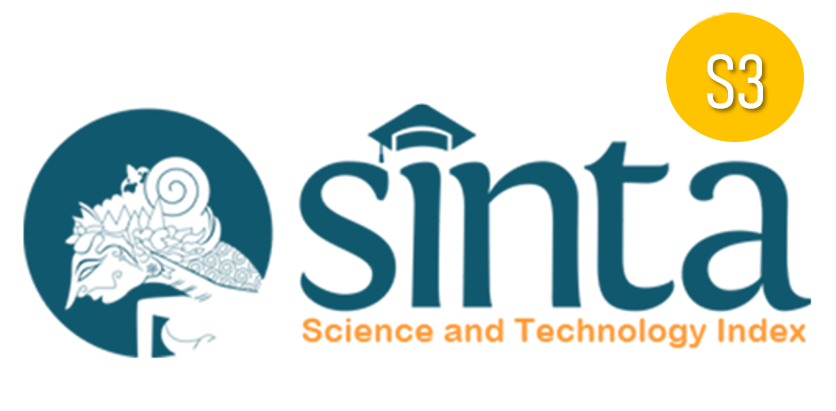Practicing Mindfulness in an Elementary School Workplace
Abstract
Keywords
Full Text:
PDFReferences
Abramson, A. (2022). Burnout and stress are everywhere. Monitor on Psychology, 53(1), 72-73.
Alsalhe, T. A., Chalghaf, N., Guelmami, N., Azaiez, F., and Bragazzi, N. L. (2021). Occupational burnout prevalence and its determinants among physical education teachers: A systematic review and meta-analysis. Frontiers in Human Neuroscience, 15, 553230.
Bishop, S. R., Lau, M., Shapiro, S., Carlson, L., Anderson, N. D., Carmody, J., Segal, Z. V., Abbey, S., Speca, S., Velting, D., and Devins, G. (2004). Mindfulness: A proposed operational definition. Clinical Psychology: Science and Practice, 11(3), 230.
Bordeos, M. L., Lagman, K. R. M., and Cruz, I. P. S. (2022). Students in the new normal: Their experiences in the pandemic’s limited face-to-face classes. American Journal of Education and Technology, 1(3), 42-51.
Chaaban, Y., Alkhateeb, H., Abu-Tineh, A., and Romanowski, M. (2023). Exploring teachers’ perspectives on career development: Q methodology research. Teaching and Teacher Education, 122, 103987.
Dela Cruz, J. M., and Mocon-Ciriaco, C. (2018). Suicide of teachers, children prompts call for govt action. Business Mirror, 1, 2019.
Dimbie, M., Kafui, A. S., and Eduam, M. A. (2021). School-based co-curricular activities and teachers’ challenges in Ghana. Indiana Journal of Arts and Literature, 2(6), 16-27.
Freeman, M. (2022). The World Mental Health Report: transforming mental health for all. World Psychiatry, 21(3), 391.
Giraldi, T., and Giraldi, T. (2019). What is mindfulness?. Psychotherapy, Mindfulness and Buddhist Meditation, 2019, 13-35.
Glena, V. S., Mushquash, A. R., Gotwals, J. K., Sinden, K. E., and Pearson, E. S. (2022). “Staying in the present moment is important”: Examining the impact of a short-term classroom-based mindfulness intervention among first-year students. Journal of American College Health, 2022, 1-10.
Gustems-Carnicer, J., Calderón, C., and Calderón-Garrido, D. (2019). Stress, coping strategies and academic achievement in teacher education students. European Journal of Teacher Education, 42(3), 375-390.
Hyland, P. K., Lee, R. A., and Mills, M. J. (2015). Mindfulness at work: A new approach to improving individual and organizational performance. Industrial and Organizational Psychology, 8(4), 576-602.
Kabat-Zinn, J. (2021). The liberative potential of mindfulness. Mindfulness, 12(6), 1555-1563.
Kelley, M. M., Zadvinskis, I. M., Miller, P. S., Monturo, C., Norful, A. A., O’Mathúna, D., and Chipps, E. (2022). United States nurses' experiences during the COVID‐19 pandemic: A grounded theory. Journal of Clinical Nursing, 31(15-16), 2167-2180.
Kumar, A., Krishnamurthi, R., Bhatia, S., Kaushik, K., Ahuja, N. J., Nayyar, A., and Masud, M. (2021). Blended learning tools and practices: A comprehensive analysis. IEEE Access, 9, 85151-85197.
Melguizo-Ibáñez, E., González-Valero, G., Ubago-Jiménez, J. L., and Puertas-Molero, P. (2022). Resilience, stress, and burnout syndrome according to study hours in Spanish public education school teacher applicants: An explanatory model as a function of weekly physical activity practice time. Behavioral Sciences, 12(9), 329.
Parida, P. K., and Parida, D. K. (2022). From ethics in education to ethics in governance: Crucial challenges for India. Integration of Human Values in the Educational Programmes, 83(1), 102-111.
Rabacal, J., Oducado, R. M., and Tamdang, K. (2020). COVID-19 impact on the quality of life of teachers: A cross-sectional study. Asian Journal for Public Opinion Research, 8(4), 478-492.
Tarraya, H. O. (2023). Teachers' workload policy: its impact on Philippine Public School Teachers (Public policy analysis and review). Puissant, 4, 1-13.
Westphal, A., Kalinowski, E., Hoferichter, C. J., and Vock, M. (2022). K−12 teachers’ stress and burnout during the covid-19 pandemic: A systematic review. Frontiers in Psychology, 13, 920326.
Xu, J., and Choi, M. C. (2023). Can emotional intelligence increase the positive psychological capital and life satisfaction of chinese university students?. Behavioral Sciences, 13(7), 614.
Zenner, C., Herrnleben-Kurz, S., and Walach, H. (2014). Mindfulness-based interventions in schools—a systematic review and meta-analysis. Frontiers in Psychology, 5, 603.
DOI: https://doi.org/10.17509/ijert.v4i2.62909
Refbacks
- There are currently no refbacks.
Copyright (c) 2023 Universitas Pendidikan Indonesia (UPI)

This work is licensed under a Creative Commons Attribution-ShareAlike 4.0 International License.







.png)




